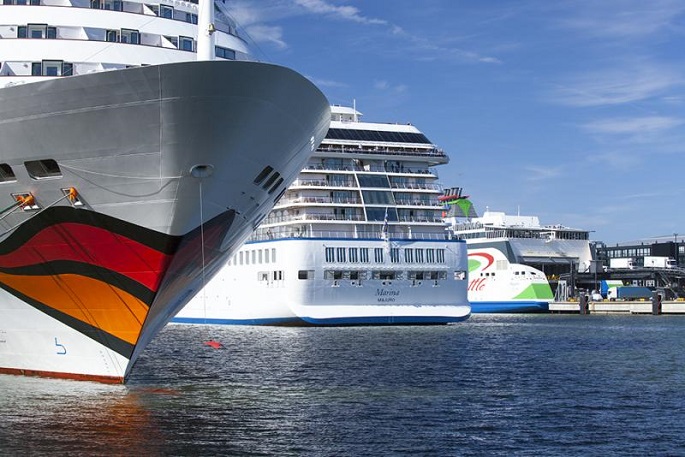Models made to ensure coronavirus safety in cruise ships
Published : 24 Feb 2021, 22:31
Updated : 24 Feb 2021, 22:41
New research will enhance coronavirus safety during cruises and help cruise lines to attract passengers onboard again, said the Åbo Akademi University in Turku in a press release on Wednesday.
The researchers in Cell Biology and Industrial Management at ÅboAkademi University in Turku, Finland have developed models aimed at ensuring coronavirus safety during cruises.
The coronavirus pandemic more or less completely stopped the cruise industry. Passenger ferry operators Tallink Silja and Viking Line lost 70–80 per cent of their passengers, and their financial losses total tens of millions of euro.
Major international cruise lines, such as Royal Caribbean Group and Carnival Corporation, largely suspended their cruises during 2020, which resulted in practically zero turnover and losses amounting to billions.
Upon assignment by Business Finland, an interdisciplinary research team has been working to find solutions for managing the current crisis as well as possible during future pandemics.
Under the Healthy Travel Project, the researchers have developed models to describe work and passenger flows on vessels of different sizes as well as the need for testing in order to cost-effectively minimise the risk of embarkation of disease carriers.
“We have identified situations where the risk of spreading the virus is particularly high and developed processes and procedures to minimise the risks. Because the risk of infection spread is the largest when lots of people are gathered in confined spaces, we have primarily focused on embarkation and shared premises onboard,” explained Magnus Hellström, an associate professor in Industrial Management at the ÅboAkademi University.
Moreover, the researchers have outlined how the different security levels can be used to prevent the virus from spreading onboard, depending on the infection situation.
During a pandemic, the passenger numbers are limited and more attention is paid to cleaning the surfaces. Also, the need for queuing and times spent in shared premises can be reduced by, for example, offering electronic restaurant bookings. The risk of spreading the virus can further be mitigated by placing hand sanitizers and mask recommendations at entrances and by acquiring coronavirus test equipment for use during the cruise.
“Last spring in Japan, a virus outbreak originating from a single passenger onboard the Diamond Princess resulted in about 700 persons falling ill. The case showed how important it is to invest in relatively simple screening procedures for embarkation and safety routines during the cruise,” said Erik Niemelä, a project researcher in Cell Biology at the ÅboAkademi University.


